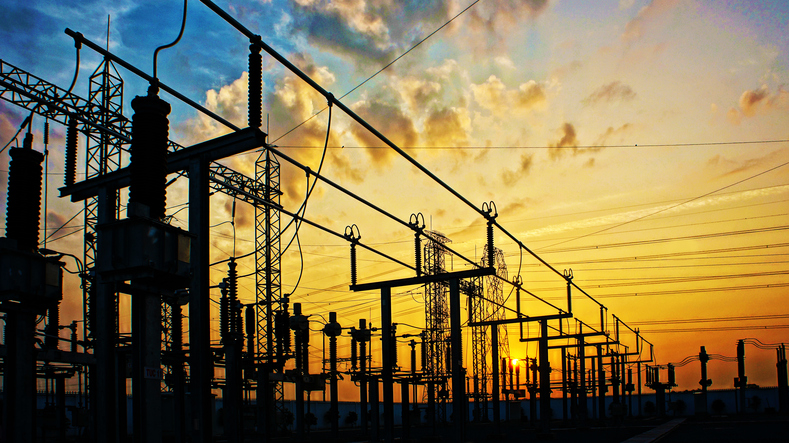Last week, the Climate Change Committee (CCC) published a landmark report modelling the UK energy sector’s transition to net zero.
Delivering a reliable and resilient decarbonised power system showed that a decarbonised power sector by 2035 is achievable, but called on the government to make changes to increase the pace of the transition.
“The CCC today have demonstrated that government must rapidly address barriers to deployment of renewable and low carbon infrastructure, in order to significantly increase deployment, if the UK is to deliver a secure, affordable and decarbonised power system,” said Mark Sommerfeld, head of Power and Flexibility at the REA (the Association for Renewable Energy and Clean Technology) in response to the report.
“Today this means urgently investing in our power grid to ensure new generation can connect quickly; significantly speeding up the planning system so that projects can move ahead in a reasonable time frame; and ensuring a route to market for a wide range of low carbon generation and storage technologies.”
Reliable, decarbonised power is now the prize for all modern economies. And the economics make harnessing renewables – the cheapest form of generation – the central goal.
— Chris Stark (@ChiefExecCCC) March 9, 2023
If we can achieve it, we can open up ‘electrification’ as the simplest strategy to decarbonise most sectors.
The need for policy to support network expansion to enable increasing amounts of low carbon generation to be connected to the grid is core to the CCC’s recommendations, and has been drawing increasing focus in the sector already.
“If we are to hit the government’s decarbonisation targets, secure energy investment in an increasingly competitive global market and protect long term energy security for customers then the government needs to be acting faster now,” said Lawrence Slade, chief executive of the Energy Networks Association.
“The CCC’s report makes clear that the solution to this challenge must involve both gas and electricity, yet policy progress is lacking. We need to see rapid progress across both renewables and hydrogen deployment to make the 2035 target achievable.”
Attracting international investment will be essential to meeting net zero goals, as was echoed in the response from many within the energy sector.
“There is a huge investment opportunity in a cleaner, cheaper electricity system that isn’t blown about by international gas markets, but government needs a clearer plan for investors to pile in. The additional costs involved in balancing a renewables grid are minimal particularly when compared to the cost of gas power,” said Jess Ralston, head of Energy at the Energy and Climate Intelligence Unit (ECIU).
“With batteries building quickly, and the opportunity of demand responding to supply demonstrated by the Demand Flexibility Service, there are obvious routes forwards.”
The CCC outlined numerous forms of low-carbon flexibility it expects to form part of the mix by 2035, including an increasingly important role for hydrogen.
“Today’s report shows how much further the UK needs to go to decarbonise its electricity supply and to take advantage of new technologies such as hydrogen. Government policy has been helpful in getting us this far, but the policy landscape is changing and the UK must move quickly to keep up with other markets that are becoming increasingly attractive. What we need in the UK is a clear and simple plan that delivers financial support and de-risks investment,” said Steve Scrimshaw, VP of Siemens Energy in the UK and Ireland.
“Now is the time to move beyond aspirations and targets to set out practical solutions to deal with short-term issues, like the damaging impact of cost inflation on the offshore wind market, whilst also providing the long-term framework needed to make sure we have skilled people in place, have a stable and resilient grid fit for the future, and that the UK remains an attractive place for investment. Other major markets like the US and Europe are putting billions into the green transition and I’d urge the UK Government to give this area the focus and investment it needs.”
The CCC’s report comes ahead of the Spring Budget this week (15 March), with reports that the Chancellor is set to commit £20 billion to carbon capture along with other speculation as to increased energy bills support.
“With the spring budget coming up next week, Government must also re-establish the UK as an attractive market for low carbon investment. With investors increasingly being attracted to the US and the EU, the chancellor must consider reforms to the UK’s tax system to reopen the investment pipelines for new projects. This includes providing capital allowances for those investing in renewable and low carbon power technologies, while also shortening the period that the new tax on renewable generation (the Electricity Generator Levy) will be in place,” added the REA’s Sommerfeld.
“The CCC couldn’t be clearer, delivering a secure and decarbonised power system needs urgent action today.”






